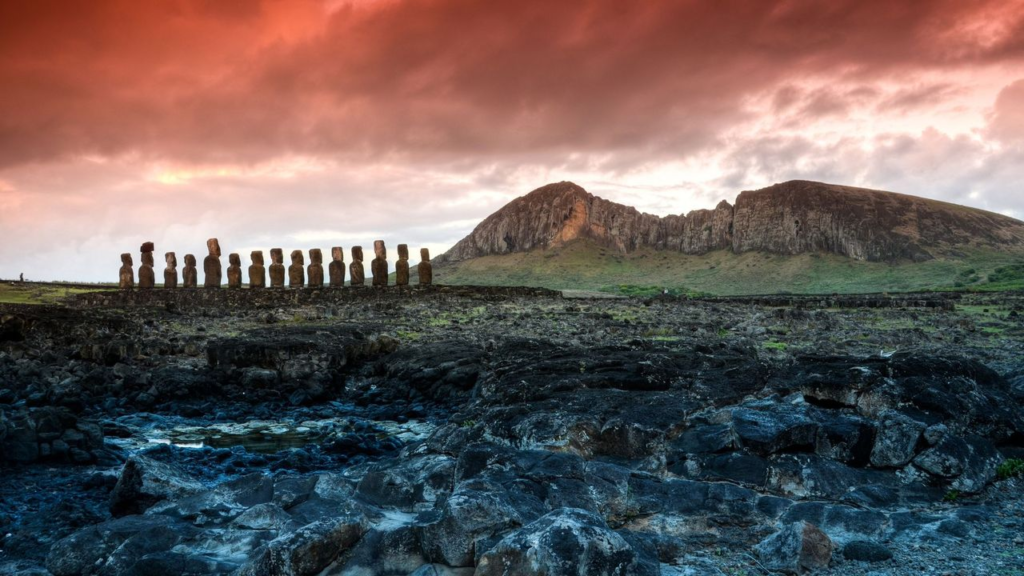The formalization of the collaboration agreement, marked by the signatures of representatives from the Juan Fernández Archipelago, Desventuradas Islands, Puerto Raúl Marín Balmaceda, and Rapa Nui, solidified the establishment of the Network of Communities of Marine Protected Areas of Chile. This agreement enables direct connections between communities and other organizations and funds dedicated to conserving natural heritage. It also empowers communities to initiate various initiatives at the local level.
The process was undertaken by Fundación Chile’s Sustainable Coves program, with the support of the BHP Foundation’s Coastal Community Network.
A milestone in environmental protection was reached in Rapa Nui on the eve of World Oceans Day, with the creation of the Network of Communities of Marine Protected Areas of Chile (REDCAMP), through the establishment of a corporation.
“Formalizing this corporation enables communities to forge connections and collaborations with other regions, actively engage in the management of marine protected areas (MPAs), shape public policies, and undertake various community-level initiatives,” explained Claudia Razeto, Director of Sustainable Coves at Fundación Chile. The program has been spearheading the establishment of this corporation since 2023, with support from the BHP Foundation’s Coastal Community Network.
The idea of creating this network emerged in 2017, during the IV International Marine Protected Areas Congress (IMPAC4). On that occasion, the representatives of Rapa Nui, Juan Fernández and Puerto Raúl Marín Balmaceda proposed to create this network. Since 2023, the representatives of each community, together with Fundación Chile, worked together to develop the statutes that allowed the Redcamp to be formalized. To achieve the involvement of the communities, a cycle of dissemination, validation and adjustment of the statutes was carried out with the inhabitants of each territory, a process that led to the signing of the statutes in Rapa Nui.
“For the BHP Foundation it is very important to be present at this signing, because it is a project that will be led by the communities themselves. The marine area of these three communities covers more than 85% of the protected sea in all of Chile, so there is a great task ahead,” said Alejandra Garcés, director of the BHP Foundation.
According to data from the Ministry of the Environment, Chile boasts 14 multiple-use marine protected areas. Among these, the most significant are those where community involvement has been pivotal in their establishment and co-management. Notably, these include the Juan Fernández Sea and Desventuradas Islands MPAs in the Valparaíso Region, as well as the Pitipalena Añihue MPA in Puerto Raúl Marín Balmaceda, Aysén Region.
One of the signatories, Patricio Merino, executive director of Fundación Pitipalena Añihue, from Puerto Raúl Marín Balmaceda, who became vice-president of Redcamp, valued the creation of the network and indicated that one of its objectives is to continue growing: “We intend to add more communities that are in favor of protecting their territories, that want to contribute from local knowledge, since nobody knows better what happens in the territories than the people who live in them. It is very important that we can strengthen this organization and make this alliance national in scope,” he said.
During the signing ceremony, it was elucidated that the corporation, in the medium and long term, aims to undertake several initiatives, including promoting the establishment of additional marine protected areas. It also seeks to extend invitations to existing ones to join this network, implement administration, management, and monitoring plans, establish a distinctive label for products originating from these areas, and advocate for their interests in regulatory matters affecting them. “There are about 9,000 people who will benefit directly and indirectly, since the network involves the entire community in each territory. This impact could be extended to communities that already have MPAs, such as Mar de Pisagua, among others. In addition to these, there are potential marine protected areas, such as the Guaitecas Archipelago, where the Sustainable Coves program has already implemented initiatives to promote the protection of the sea and its resources,” added Razeto.




